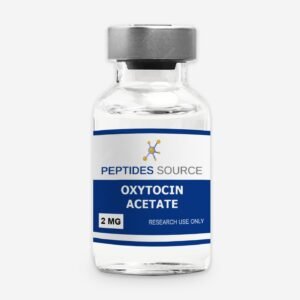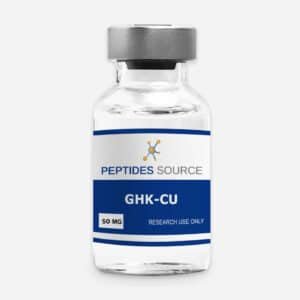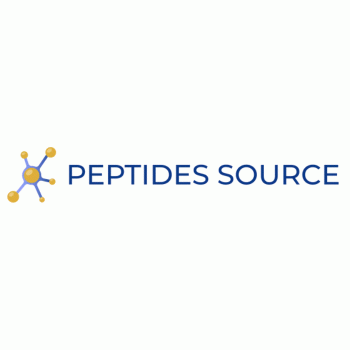Adipotide
$60.00 – $115.00Price range: $60.00 through $115.00
You save
- Physical profile: Lyophilized powder
- This product is sold as a research chemical and not for human or animal consumption. For laboratory use by qualified professionals.
Availability: Ships today if ordered and paid by 12 PM EST. (Except Saturdays & Sundays)
Product Usage
Adipotide IS INTENDED AS A RESEARCH CHEMICAL ONLY. This designation allows the use of research chemicals strictly for in vitro testing and laboratory experimentation only. All product information available on this website is for educational purposes only. Bodily introduction of any kind into humans or animals is strictly forbidden by law. This product should only be handled by licensed, qualified professionals. This product is not a drug, food, or cosmetic and may not be misbranded, misused or mislabled as a drug, food or cosmetic.
Adipotide (also known as FTPP or proapoptotic peptide) is an experimental weight-loss drug designed to target and destroy the blood supply of white adipose tissue. It works by binding to specific proteins on the surface of blood vessels that feed fat cells, causing those cells to undergo apoptosis (programmed cell death). This reduces fat mass and has shown potential benefits in obesity and related conditions in preclinical studies.
Introduction
Adipotide is an experimental peptide drug that has been explored as a potential treatment for obesity and associated metabolic disorders. It emerged as part of research efforts aimed at addressing the global rise in obesity, which poses significant risks for conditions such as type 2 diabetes, cardiovascular disease, and certain cancers. With the growing limitations of lifestyle modifications and conventional medications, Adipotide attracted scientific interest due to its unique therapeutic promise and early evidence of effectiveness in reducing body weight in animal studies. The development of Adipotide reflects a broader shift in medical research toward innovative strategies for managing complex health problems linked to excess body fat. Preclinical studies, particularly those involving non-human primates, have highlighted its potential not only in weight reduction but also in improving markers of metabolic health. While still in the investigational stage, Adipotide represents an important step in the search for new pharmacological tools to address obesity, a condition that continues to challenge public health systems worldwide.Overview
Adipotide, also known in research settings as FTPP (Fat-Targeted Proapoptotic Peptide), is an experimental therapeutic agent that has drawn significant scientific attention for its potential role in obesity management. Obesity is a multifactorial disease that has reached epidemic proportions globally, contributing to a wide range of comorbidities including type 2 diabetes mellitus, cardiovascular disorders, fatty liver disease, and even certain types of cancer. The limitations of conventional interventions such as dietary modifications, exercise regimens, and pharmacological agents have spurred the development of alternative therapeutic strategies. In this context, Adipotide emerged as a promising candidate, offering a novel approach toward reducing excess adiposity and improving metabolic health. The drug is a synthetic peptide designed as part of cutting-edge research into targeted therapies. Unlike many traditional anti-obesity medications that primarily act through appetite regulation or alterations in metabolic pathways, Adipotide was developed to provide a different, more direct strategy for body fat reduction. Its design reflects a paradigm shift in the field of obesity treatment, where researchers are exploring highly specific interventions that may bypass some of the side effects and limitations associated with conventional approaches. By focusing on fat reduction at the tissue level, Adipotide became an exciting topic in the scientific community and gained traction as an innovative product worth investigating further. Preclinical research has provided some of the most notable insights into the effects of Adipotide. In studies involving obese non-human primates, administration of the compound was associated with measurable reductions in body weight and overall fat mass. Interestingly, these changes occurred without major alterations in food intake, suggesting that the compound’s effects were independent of appetite suppression. Additionally, improvements in insulin sensitivity and other metabolic markers were observed in some studies, highlighting the potential of Adipotide to address not only weight reduction but also the broader complications linked with obesity. These early findings have positioned Adipotide as more than just a weight-loss agent. it may eventually contribute to the management of complex metabolic disorders if validated in human trials. In summary, Adipotide represents a forward-thinking approach in the evolving landscape of obesity research. Its development reflects the growing demand for novel solutions to a condition that affects millions of people worldwide and contributes to a high burden of chronic disease. While still early in its scientific journey, the progress made so far offers a glimpse into how innovative therapeutic concepts can reshape the management of obesity and related health conditions. Continued investigation will determine whether Adipotide can fulfill its potential and establish itself as a groundbreaking product in modern medicine.Mechanism of action
Adipotide, a synthetic peptide that was designed with two functional domains to specifically target white adipose tissue (WAT). The first domain, a homing sequence CKGGRAKDC, binds selectively to surface proteins such as prohibitin and annexin A2 that are highly expressed on endothelial cells of adipose vasculature [1,2]. Once localized, the second domain a proapoptotic sequence (D-(KLAKLAK)\₂)—is activated. This sequence disrupts mitochondrial membranes in the targeted endothelial cells, leading to apoptosis and subsequent degradation of the vascular supply feeding adipose tissue [1,3]. The elimination of these vessels starves fat cells of nutrients and oxygen, ultimately causing resorption of adipose tissue. This vascular-targeted apoptosis is distinct from conventional anti-obesity treatments, as it does not rely on appetite suppression or metabolic stimulation but instead physically reduces fat tissue mass [1,2].Preclinical Evidence
In murine studies, administration of Adipotide led to rapid reversal of diet-induced obesity by ablating adipose tissue vasculature, with significant reductions in body weight and fat stores [1]. Additional work in rodents demonstrated that treatment also reduced food intake without signs of visceral illness, suggesting a secondary neuroendocrine effect likely mediated through fat-derived signals [3]. Notably, in obese rhesus monkeys, Adipotide administration resulted in significant decreases in body weight and fat mass, confirmed by MRI and DEXA imaging [2]. These reductions were accompanied by improvements in insulin sensitivity, indicating beneficial effects on metabolic health beyond weight reduction. However, these studies also reported reversible renal toxicity localized to the proximal tubules, raising safety concerns that must be addressed before translation to human trials [2].Structure
Chemical Formula: C152H252N44O42 Molecular Weight: 2611.41 g/mol PubChem CID: 163360068 Sequence: Cys-Lys-Gly-Gly-Arg-Ala-Lys-Asp-Cys-Gly-Gly-(Lys-Leu-Ala-Lys-Leu-Ala- Lys)2Research
Role of Adipotide in Fat Loss
Obesity has become a leading global health challenge, driving increased risk for type 2 diabetes, cardiovascular disease, fatty liver, and certain cancers. Conventional approaches to obesity management, including lifestyle modifications and pharmacological interventions targeting appetite or metabolism, often have limited long-term success. In this context, Adipotide (FTPP, prohibitin-targeting peptide 1) has emerged as an experimental peptide-based therapeutic with a unique strategy: directly reducing adipose tissue by targeting its vasculature.Preclinical Evidence in Rodents
The earliest evidence for Adipotide’s fat-reducing potential came from studies in mice. Kolonin et al. demonstrated that the peptide selectively destroyed the blood supply of white adipose tissue, resulting in marked fat loss and reversal of obesity [1]. These findings were further supported by Trevaskis et al., who showed that administration of Adipotide in obese rodents caused significant reductions in visceral fat mass and overall body weight. Interestingly, the peptide also decreased food intake without causing malaise, suggesting a possible feedback mechanism involving adipose-derived signals [3]. Additional rodent studies confirmed improvements in metabolic parameters, including insulin sensitivity and lipid profile, following treatment [4].Studies in Non-Human Primates
Translation of these findings into non-human primates provided more clinically relevant insights. Barnhart et al. investigated Adipotide in obese rhesus monkeys and reported notable reductions in both body weight and fat mass, as confirmed by dual-energy X-ray absorptiometry (DEXA) and MRI [4]. Treated animals also exhibited improved insulin resistance, underscoring the potential role of Adipotide in preventing or treating metabolic complications of obesity. However, this study also identified dose-dependent renal toxicity in the proximal tubules, which was reversible upon discontinuation of treatment [2]. This safety concern remains a critical barrier to clinical translation.Broader Implications in Fat Loss Research
Beyond simple fat mass reduction, Adipotide has been shown to influence neuroendocrine pathways. Studies suggested that the induced apoptosis of adipose vasculature may alter satiety signals and energy homeostasis, explaining reductions in food intake observed in rodent models [2,4]. Moreover, improvements in insulin sensitivity and glucose metabolism indicate that Adipotide’s effects may extend beyond weight loss, potentially addressing the metabolic dysfunction underlying obesity-related diseases. Other experimental work has highlighted that Adipotide may be particularly effective in targeting visceral fat depots, which are strongly linked with cardiometabolic risk [2]. This selective reduction is especially valuable, as visceral adiposity is more detrimental than subcutaneous fat accumulation. Thus, Adipotide’s mechanism provides a focused strategy that could yield benefits beyond cosmetic fat loss.Conclusion
In summary, Adipotide represents an innovative anti-obesity strategy that works by disrupting adipose vasculature to induce apoptosis and fat resorption. Evidence from rodent and primate models demonstrates significant weight and fat loss, along with improvements in insulin sensitivity and metabolic health. Despite its promise, safety concerns particularly renal toxicity must be resolved before human clinical trials can advance. Nevertheless, the accumulated research underscores Adipotide’s role as a potential breakthrough in fat loss therapies and highlights the importance of targeting adipose vasculature as a novel therapeutic pathway in obesity management.Role of Adipotide in Controlling Cancer
It was originally developed as a vascular-targeting therapeutic agent, and its potential extends beyond obesity treatment into oncology research. Tumor cells rely on angiogenesis to sustain growth and metastasis, making the tumor vasculature an attractive therapeutic target. Adipotide binds specifically to prohibitin, a protein overexpressed on endothelial cells of tumor-associated blood vessels, and delivers a pro-apoptotic sequence that induces selective vascular apoptosis [6]. This leads to starvation of the tumor microenvironment, restricting its nutrient and oxygen supply. Preclinical studies have demonstrated the anti-cancer potential of Adipotide. Kolonin et al. reported that vascular-targeted peptides could successfully disrupt tumor blood vessels and inhibit tumor progression in murine models [1]. Similarly, Arap and Pasqualini showed that ligand-directed pro-apoptotic peptides produced significant anti-tumor effects without major toxicity to normal tissues [7]. By selectively ablating pathological vasculature, Adipotide may not only limit tumor growth but also enhance the delivery and efficacy of co-administered chemotherapeutic agents [8]. In conclusion, Adipotide’s role in controlling cancer lies in its ability to target tumor vasculature through prohibitin binding, thereby inducing apoptosis and suppressing tumor progression. While still experimental, it represents a promising approach in vascular-targeted cancer therapy.Role of Adipotide in Glucose Tolerance
Obesity is closely associated with impaired glucose metabolism and insulin resistance, which are central features of type 2 diabetes. Beyond its fat-reducing effects, Adipotide has been shown to play a role in improving glucose tolerance. By inducing apoptosis of adipose vasculature and reducing visceral fat depots, Adipotide alleviates adipose tissue dysfunction, a key contributor to systemic insulin resistance [1]. In rodent studies, administration of Adipotide led to significant reductions in fasting glucose levels and improvements in insulin sensitivity. Trevaskis et al. demonstrated that obese mice treated with Adipotide exhibited enhanced glucose tolerance tests, suggesting improved metabolic homeostasis [3]. These effects were linked to both reductions in adipose tissue mass and changes in circulating adipokines that influence glucose regulation [2]. Evidence from non-human primates further supports these findings. Barnhart et al. reported that obese rhesus monkeys treated with Adipotide not only lost body fat but also showed marked improvements in insulin resistance and glucose disposal rates [2]. Importantly, these benefits occurred independently of major changes in food intake, highlighting the therapeutic potential of vascular-targeted fat reduction for metabolic disorders. Cutting in short, Adipotide improves glucose tolerance by reducing visceral adiposity and restoring insulin sensitivity. While preclinical results are promising, further research is needed to validate these findings in human studies.References
- Kolonin MG, Saha PK, Chan L, Pasqualini R, Arap W. Reversal of obesity by targeted ablation of adipose tissue. Nat Med. 2004;10(6):625-32.
- Barnhart KF, Christianson DR, Hanley PW, Driessen WH, Bernacky BJ, Baze WB, et al. A peptidomimetic targeting white fat causes weight loss and improved insulin resistance in obese monkeys. Sci Transl Med. 2011;3(108):108ra112.
- Trevaskis JL, Walder K, Ellis R, Kantham L, Mcmillan JS, et al. Proapoptotic peptide causes targeted reduction in visceral adipose tissue and weight loss in rodents. Diabetes. 2010;59(4):1000-5.
- Jo Y, Strane PW, Nakashima T, Lo CY, Kolonin MG. Adipose tissue apoptosis reduces fat mass and improves metabolic health in obese mice. Obesity (Silver Spring). 2007;15(12):2691-9.
- Walder K, McMillan JS, Trevaskis JL, Kerr L, Degger B, et al. Adipose tissue apoptosis results in reductions in adiposity and body weight in obese animal models. Int J Obes (Lond). 2009;33(2):177-86.
- Kolonin MG, Pasqualini R, Arap W. Molecular addresses in blood vessels as targets for therapy. Curr Opin Chem Biol. 2001;5(3):308-13..
- Arap W, Pasqualini R, Ruoslahti E. Cancer treatment by targeted drug delivery to tumor vasculature in a mouse model. Science. 1998;279(5349):377-80.
- Ellerby HM, Arap W, Ellerby LM, Kain R, Andrusiak R, Rio GD, et al. Anti-cancer activity of targeted pro-apoptotic peptides. Nat Med. 1999;5(9):1032-8.
Protocol
Clinical Research






